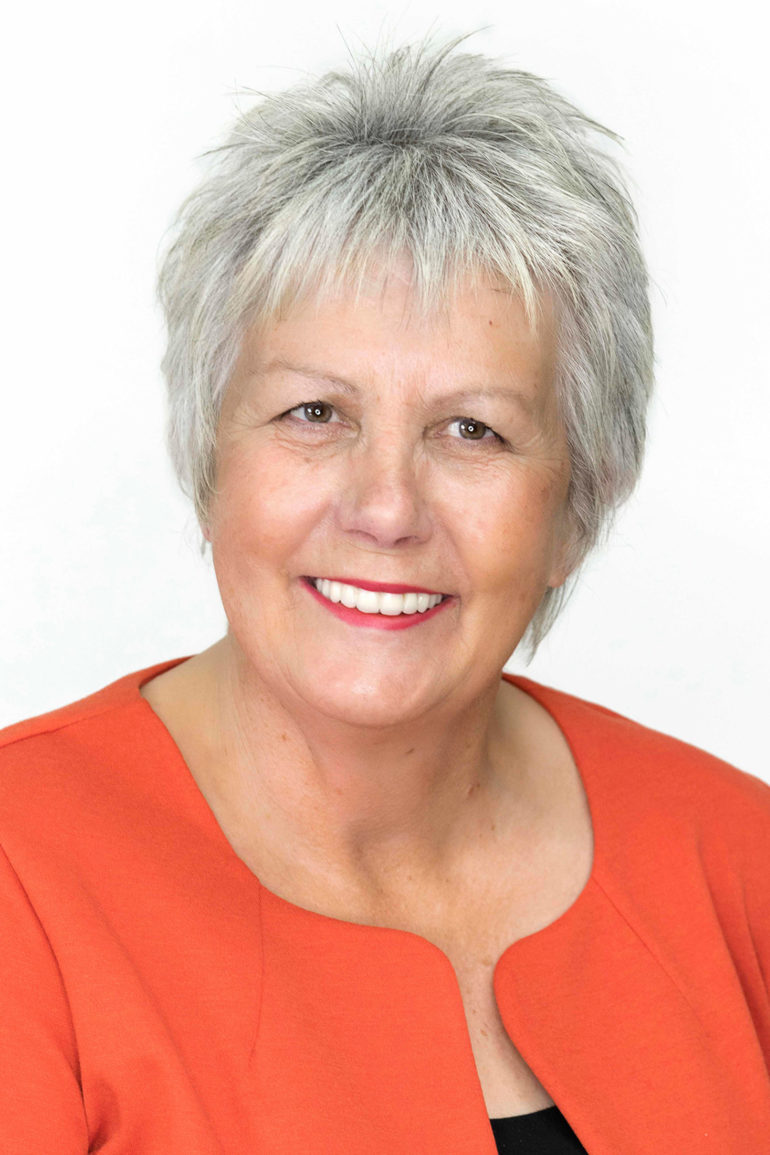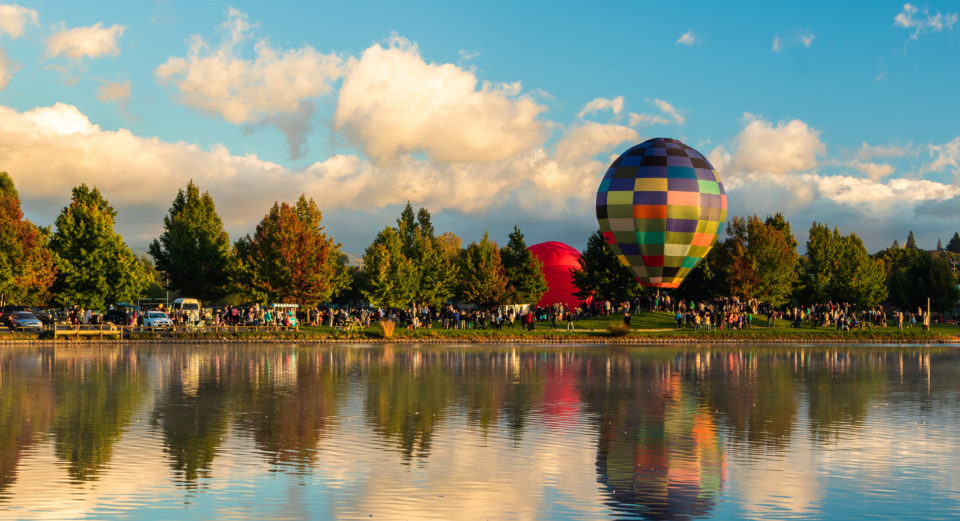Lyn Patterson has been the incumbent Mayor of Masterton for almost nine years, but has decided not to seek re-election this year despite her ongoing popularity with the majority of the community. By Richard Silcock, a former resident of the city.

“I am 67 and have given many years to local body politics, but I think it is time for me to move over and let someone else take over the reins,” says Lyn Patterson the mayor of Masterton.
“Someone with some fresh ideas on how to continue to make Masterton a great place to live and work, and who can embrace the major reforms that local authorities are facing, such as three waters and the RMA.”
“I’ve enjoyed my time, met lots of wonderful people, and have relished helping to make Masterton a great place. I am now looking forward to a new chapter in my life and spending more time with my family and grandchildren and catching up on reading a stack of books I have accumulated over the years.”
Originally from Hawke’s Bay and a chartered accountant by profession, Lyn moved to the Wairarapa in her early twenties and was employed by the Carterton District Council as the finance manager. She then headed to South Africa for three years before returning in 2006.
With an enduring interest in local politics she stood for, and was elected to, the Masterton District Council and in 2013 was elected mayor around the time of the controversial proposal to amalgamate the three Wairarapa District Councils into one body – a proposal that did not eventuate.
A supporter of amalgamation (she was the chair of the Wairarapa Governance Review Working Party who made the application to the Local Government Commission), Lyn was quoted in the DomPost as saying when elected Mayor: “I won’t be long in this job – if I have my way I will be a one-term Mayor.”
However, such was the impact Lyn had on the community and although amalgamation was voted out in a referendum, she was re-elected at the following 2016 local body elections and again in 2019.
“I attribute my success to having an ‘open-door’ policy, ready to listen to others’ opinions, advocating and acting on change for the betterment of Masterton and the community, being firm in my decisions and able to emanate positivity,” she says.
“I have worked pretty hard and I think people recognised I was someone who was prepared to roll their sleeves up and get on with the job.”
Masterton is a rural town of some 27,500 citizens and is the largest in the Wairarapa region. It is regarded as a service town, providing for its residents and the predominantly farming community surrounding it.
As an ex-resident I can testify that it is also a town with many attributes, boasting several large parks, a medical/surgical hospital, four supermarkets, a number of excellent schools including two of the country’s best private tertiary institutions, two multiplex cinemas, a recreation centre, a new skate park and netball complex and attained the title of the Most Beautiful Small City in New Zealand several years ago.
Over summer the town hosts the annual Golden Shears and every second year the Wings over the Wairarapa Airshow and balloon festivals, which attracts some 25,000 visitors over these two-three day events and are of enormous economic benefit to the town and the region.
However, and like many small towns in the country it is not without its problems with unemployment and housing the main issues and it has traditionally seen the younger generation heading away for the bright lights of the bigger cities.
“Like many towns and cities in the country we do have a housing issue, particularly in regards to social housing,” says Lyn. “We are addressing this in a number of ways and hope to progress a new social housing development on the perimeter of the town very soon.
“Unemployment is on the decline and through a number of youth programmes and the provision of facilities for young people more are staying or returning after attending university or their OE to work and live here, although the latter has been curtailed by the Covid pandemic.
“We are currently experiencing a population growth with an influx of people escaping the cities and looking for a better way of life, cheaper housing, good public facilities such as parks, hospitals and schools and an easier way of life.”
Asked what she had enjoyed and disliked most in her time as mayor, Lyn says her enjoyment has been all about the people and infrastructure development.
“I like meeting and getting to know people. I’m a people person and thrive on interaction. Community events, new citizen ceremonies and the work of our volunteers has given me great pleasure.
“As have the developments in the town, such as the new netball multiplex, the purpose-built new skate park (built with funding assistance from the Government’s Provincial Growth Fund), Youth Hub, the arrival of some large shopping retailers in town such as Big Save and the redevelopment of Lansdowne’s First Street and Solway shopping precincts.
“I was also over-joyed with the appointment of an iwi representative to the council, and the internal appointment of our new chief executive, David Hopman in November last year.
“I not a negative person and don’t really have any dislikes, other than I find the slow wheels of bureaucracy frustrating at times. I am a doer and like to get on with things, but in our democratic society we are obliged to tick off all the boxes as it were, consult and be open to scrutiny – all of which can take some time.
“For example, I would like to see the social housing for pensioners that I mentioned before advanced more quickly on a parcel of land that the Council could either own, or lease, and where modular housing can be rapidly constructed, but has been delayed due to bureaucratic processes.
“Encouraging more consultation and collateral decision making between local authorities, central government and iwi [Crown-recognised Maori tribes] is another thing I would like to see more of particularly where this is beneficial to all parties.
“The Three Waters reform is a good example of this. The LGNZ Three Waters project began in 2013 and has led to the proposed reforms and although the sector understands the need for change, along with concerns around health of our waterways, the engagement of our communities around the case for change wasn’t well articulated by either local or central government.
“I also have an issue with social media. While I appreciate this form of communication can be beneficial it is unfortunate that sometimes it is used to circulate facts incorrectly, or promulgate someone’s personal agenda bias.
I like meeting and getting to know people. I am a people person and thrive on interaction. Community events, new citizen ceremonies and the work of our volunteers has given me great pleasure.
“Within council and the wider community we are experiencing some division over our proposed new Civic Centre to replace the town hall and former council offices which are deemed to be well below seismic structural integrity.
“We have the opportunity to build the centre, combining the library, an events space and community hub along with other facilities, all under the one roof in the precinct encompassing the art gallery and museum.
“It will be an asset to the town and provide a cultural and recreation space adjacent to Queen Elizabeth Park and nearby river walk.”
On the question of the Three Waters reform, Lyn says she, like a lot of other mayors and their councils, initially had an issue with losing local council owned assets.
“But we do need to remember a lot of councils have not invested in the necessary infrastructure in the past and going forward could find it difficult to fund the required infrastructure development from their ratepayer base, so there is a need to explore other options.
“The well-being of the community has always been important to me and the council will, I hope, continue to invest in, support and grow the town through the provision of infrastructure, key services, facilities such as the airport where a $7million upgrade is planned, more playing fields and continue the beautification programme of the CBD.
“I have long advocated for a better rail service for the region and the re-establishment of an air service to Auckland. With the Lower North Island Rail Integrated Mobility Plan (LNIRIM) being promulgated by the Greater Wellington Regional Council, Horizons Regional Council and KiwiRail, hopefully we can look forward to a greater frequency in rail services to Wellington with new trains and infrastructure.”
During her time on the Council and as mayor Lyn has served on a number of committees within council and externally, including the Wairarapa Economic Development Group, the Wellington Regional Transport Committee, Iwi Governance Forum (as co-chair) and the Wairarapa Shared Services Working Group.
Lyn and her husband Phil intend to stay in Masterton and, while she will walk away from public life after the October elections, she intends to look around for some other things to do, particularly in regards to helping the community, but first will be catching up on a lot of reading and devoting more time to family. LG



